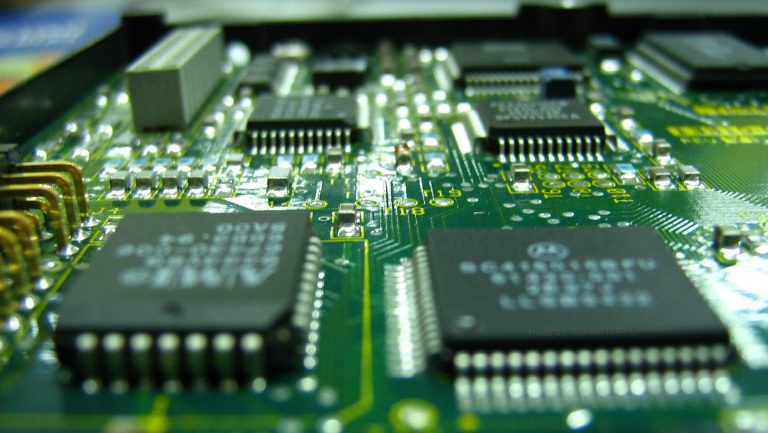Intel has faced several setbacks in recent years. The American chip manufacturing industry has declined over the past decades. However, the tech giant is planning to revitalize the manufacture of semiconductors in the United States in hopes of boosting the company’s prospects.
A key part of Intel’s plan involves investing $20 billion on two new campuses at the company’s Chandler plant in Arizona. Additional sites across America will be set up in the future, including a third manufacturing complex at a 1,000-acre site set to cost $100 billion.
With its new factories, Intel hopes to overcome its rivals Korea’s Samsung and Taiwan’s TSMC in the manufacture of advanced chips. If Intel’s plans pay off, it could restore American semiconductor manufacturing. It now only accounts for 12 percent of global production, which is down from 37 percent in 1990.
“Intel will use those factories to make its own chips but also open them to outside customers in what is called a ‘foundry’ business model in the chip industry… The new factories will focus on cutting-edge computing chip manufacturing, rather than the older or specialty technologies that some manufacturers such as GlobalFoundries specialize in,” according to a Reuters report. Intel has traditionally been a minor player in the foundry business.
At present, roughly 92 percent of the world’s 5-nanometer chip production is accounted for by Taiwan’s TSMC. This concentration of such a critical component of digital infrastructure is a risk.
Success
You are now signed up for our newsletter
Success
Check your email to complete sign up
A massive earthquake or tsunami that devastates Taiwan will completely damage the global chip supply. The potential of a Chinese invasion and annexation of the island is also a major threat as it will give the communist government control over crucial technology.
According to Pat Gelsinger, who became Intel’s CEO this past February, the company has had some “missteps,” with strategies becoming “a little bit confused.” Gelsinger expects Intel to surpass TSMC and Samsung by 2025 thanks to its investment in new chip fabrication plants.
“Every aspect of defense, intelligence, government operations is becoming more digital… And we want to rely on foreign technology for those critical aspects of our defense and national security? I don’t think so,” Gelsinger told CNBC.
However, Intel’s plans also rest in part on how the government supports its initiative. In June, the U.S. Senate passed a $250 billion bill aimed at funding research programs. For the semiconductor industry, $52 billion was set aside under the Creating Helpful Incentives to Produce Semiconductors for America (CHIPS) Act. However, the legislation has not moved forward since then and is currently stalled in the House.
“Our strong plea to the House is get the CHIPS act done, get it funded… Because I know we and others are looking forward to the opportunity to go even faster to rebuild our supply chains, to get more of that back on U.S. soil as a result of this funding,” the Intel CEO told Bloomberg.
On Nov. 10, a bipartisan group of governors wrote a letter to Congressional leaders, urging for the quick passage of the CHIPS Act. It stated that the legislation will create a “resilient domestic semiconductor supply chain” that will be beneficial to American interests.
“The CHIPS Act funding would also provide a new, powerful tool in our states’ economic development toolboxes. Collocating semiconductor production will spur innovation and reduce inefficiencies and costly delays for our manufacturers and suppliers, helping us to attract long-term, sustainable investments from companies around the world,” the letter stated.














